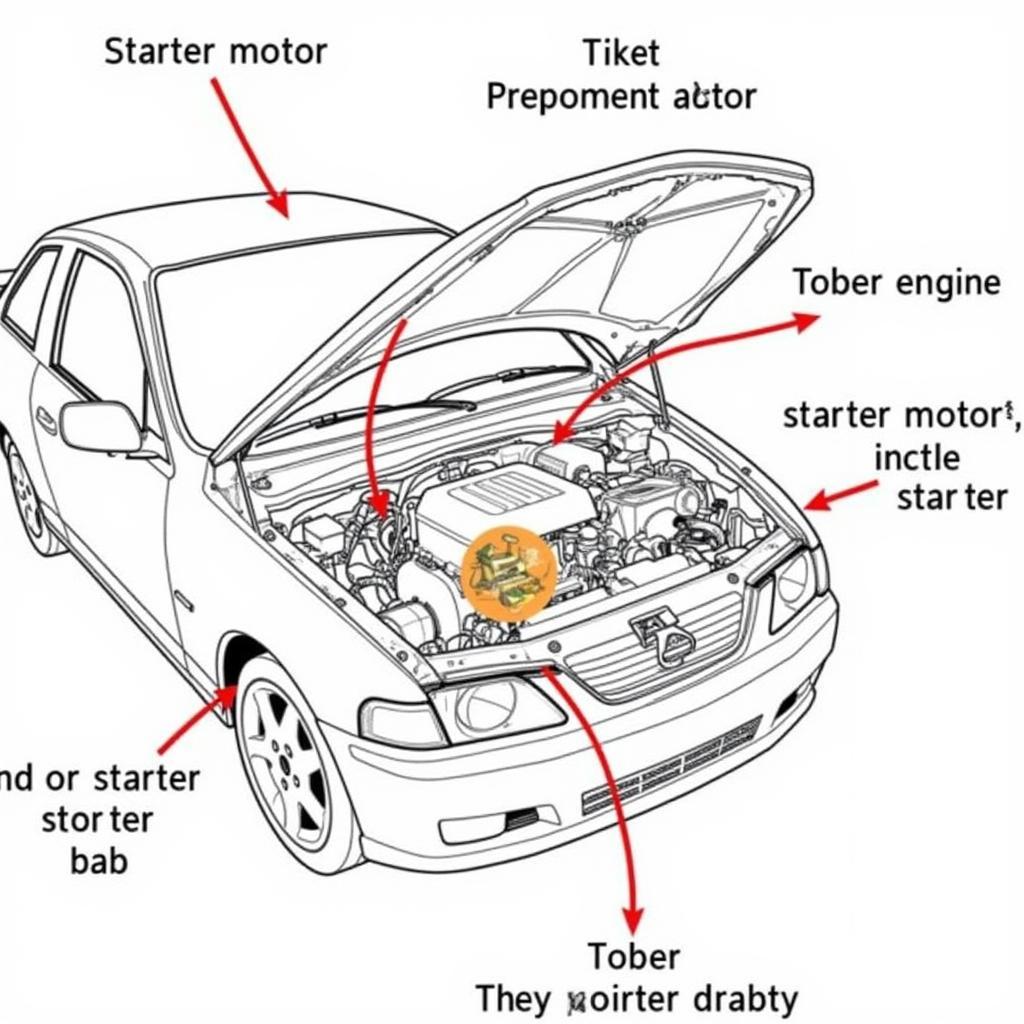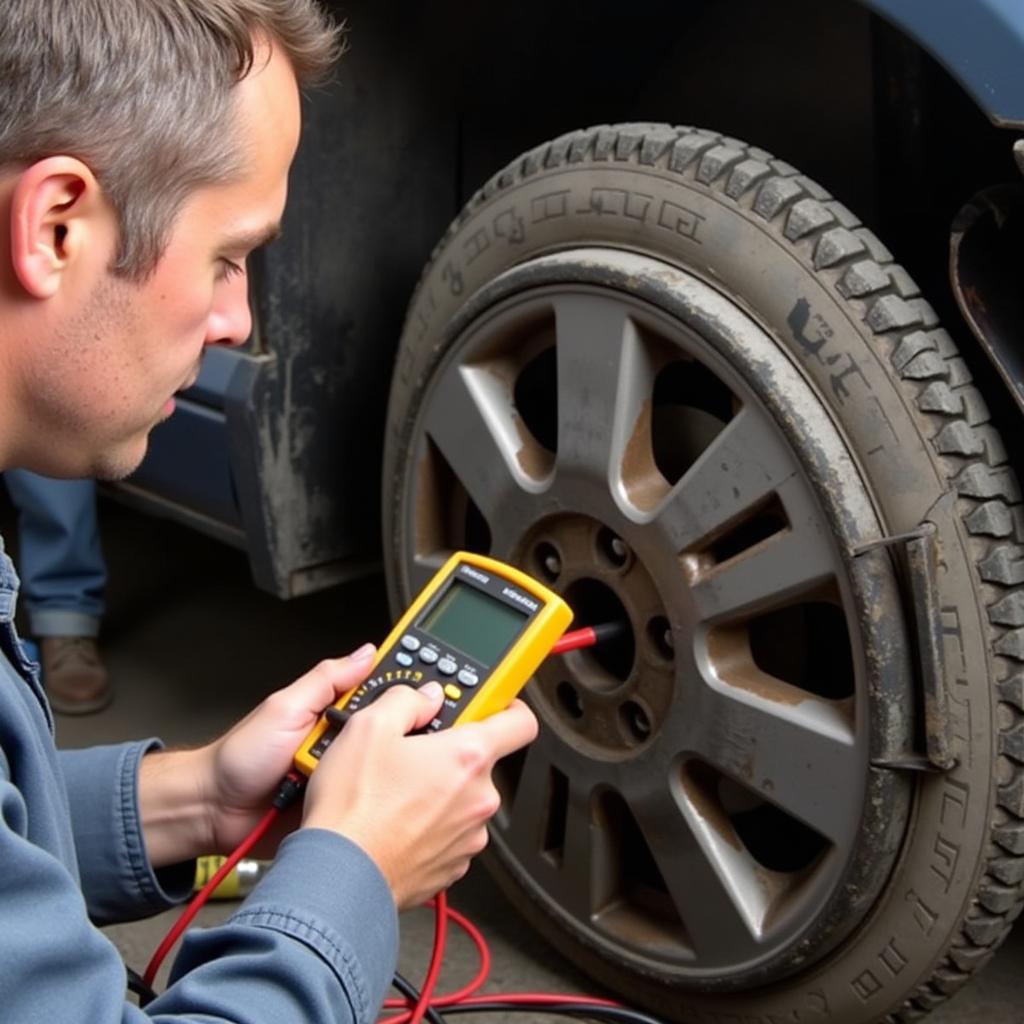You just installed a new car battery, expecting a roar of life from your engine, but instead, you’re met with…nothing. A new car battery but car still won’t start can be incredibly frustrating. Don’t worry, you’re not alone. This article will guide you through the most common reasons why your car won’t start even with a new battery, and how to troubleshoot them.
It’s easy to assume a dead battery is the culprit when your car refuses to start. However, even with a brand new battery, other issues can prevent your engine from turning over. We’ll explore these issues, from simple checks to more complex problems, equipping you with the knowledge to get your car back on the road. Before you call a tow truck, take a deep breath and work through these diagnostic steps.
Common Reasons Why Your Car Won’t Start With a New Battery
There are several reasons why your car might not start even with a new battery. Let’s explore some of the most common culprits:
Loose or Corroded Battery Terminals
A new battery won’t do much good if the connections are faulty. Check both the positive and negative terminals for any corrosion or looseness. Corrosion can prevent proper current flow, while loose connections can completely interrupt the circuit.
- Check for Corrosion: Look for a white, powdery substance around the terminals. If present, clean it with a wire brush and a mixture of baking soda and water.
- Tighten the Terminals: Ensure the terminals are securely clamped onto the battery posts. A loose connection can prevent power from reaching the starter.
Faulty Starter
The starter motor is responsible for cranking the engine. If it’s faulty, your engine won’t start, even with a new battery. You might hear a clicking sound when you turn the key, indicating a starter problem.
 Car Starter Motor Location
Car Starter Motor Location
Bad Alternator
While the battery provides the initial power to start the car, the alternator keeps it running and recharges the battery. A faulty alternator can drain a new battery very quickly, leaving you stranded.
Ignition System Problems
The ignition system is responsible for creating the spark that ignites the fuel in the engine. Problems with the ignition switch, ignition coil, or spark plugs can prevent the engine from starting.
Fuel System Issues
Even with a good battery and starter, your engine needs fuel to run. A clogged fuel filter, a faulty fuel pump, or a lack of fuel can all prevent the car from starting. Check your fuel gauge and listen for the fuel pump priming when you turn the key to the “on” position (before starting).
What to Do When Your New Car Battery Won’t Start Your Car
Here’s a step-by-step guide to help you troubleshoot the problem:
- Check the Battery Terminals: Ensure they are clean, tight, and free from corrosion.
- Inspect the Starter: Listen for a clicking sound when turning the key. This often indicates a starter issue.
- Test the Alternator: If the car starts but dies shortly after, the alternator may not be charging the battery.
- Examine the Ignition System: Check the ignition switch, coil, and spark plugs for any issues.
- Verify the Fuel System: Make sure you have enough fuel and that the fuel pump is working correctly.
For instance, if you’re dealing with a 2007 Honda Civic and have replaced the key fob battery, this might not be directly related to your car starting issue. Check out 2007 honda civic key fob battery for more information. Similarly, key fob batteries for other Honda Civic models, like the honda civic 2014 key fob battery, the honda civic 2016 key fob battery, or the 2009 honda civic key fob battery, also won’t affect the engine starting if the car battery itself is new.
Perhaps you’ve even replaced the 2017 honda civic key fob battery recently, but the car still won’t start. Remember, the key fob only controls the locks and remote start, not the core engine function.
“A common mistake people make is assuming a new battery automatically solves starting problems. Always check the connections and other related components,” says John Smith, Automotive Electrical Engineer at Acme Auto Repair.
Conclusion
Having a new car battery but the car still won’t start can be perplexing. However, by systematically checking the connections, starter, alternator, ignition system, and fuel system, you can pinpoint the culprit and get back on the road. If you’ve tried these steps and are still having trouble, it’s best to consult a qualified mechanic.
“Don’t underestimate the importance of regular car maintenance. It can prevent many starting problems and extend the life of your vehicle,” adds Jane Doe, Lead Technician at Doe’s Auto Diagnostics.

